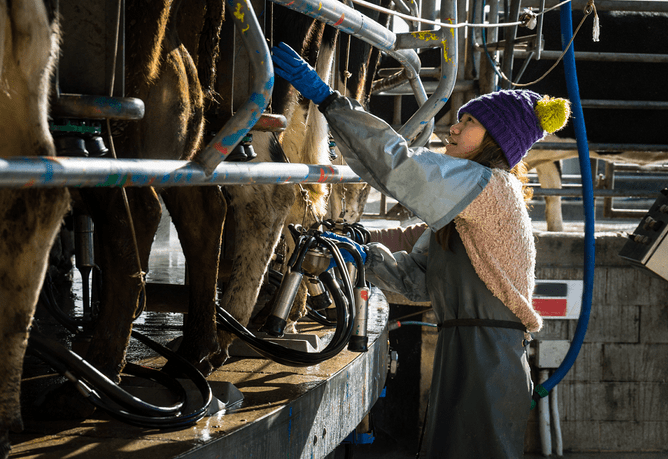You can metricheck your cows from 14 days after calving. We dive into why this is important and how it can help repro results.
With spring nearly in full swing, the small window of time for your cows to recover from calving and prepare for mating is upon us
After calving, most cows’ uteruses will become contaminated with bacteria. While the majority of cows will clear these infections naturally, around 10-20% won’t and these cows will develop endometritis.
Endometritis can delay the cycling of a cow, which will reduce conception rates. Sometimes, these infections can spread deeper into the tissues and cause metritis, in which case she will become systemically unwell and have significantly reduced milk production.
Thankfully, these post-calving infections can be found by metricheking your herd.
What is metrichecking?
Metrichecking is the examination of the vaginal discharge in a cow that has calved over 14 days ago. The process checks for evidence of infection or slowed healing after calving.
It is a quick and fast test that can be done at milking time and we can simultaneously draft and treat any positives with the intrauterine nil-milk withholding antibiotic, Metriclean.
Benefits of Metriclean
A 2003 New Zealand-based study by Scott McDougall found that cows with retained foetal membranes or vulval discharge who were metricleaned were, on average, likely to conceive 13 days earlier than similar cows that had never been treated.
We recommend testing all cows once they are over two weeks post-calving.
There are common risk factors for endometritis, such as assisted or difficult calvings, retained foetal membranes, dead calves, twin calvings, milk fever, ketosis and selenium deficiencies.
However, there has been ongoing research showing that, in farms that did whole herd metrichecks, around 70% of cows identified as positive had been considered ‘not at risk'.
These studies have also shown that there is a positive return on investment to whole herd metrichecking when more than 2% of dirty cows are treated.
Another study in 2018 showed that the herds that were metrichecked and had animals treated earlier were in-calf, on average, two days earlier, had a 2.4% higher 6 week in calf rate and 1.65% fewer empty cows.
Treating these infected cows not only helps their reproduction results, but improves their body condition and milk production for the year.
If you would like more information on metrichecking and reducing endometritis in your herd, please talk to your KeyVet.

